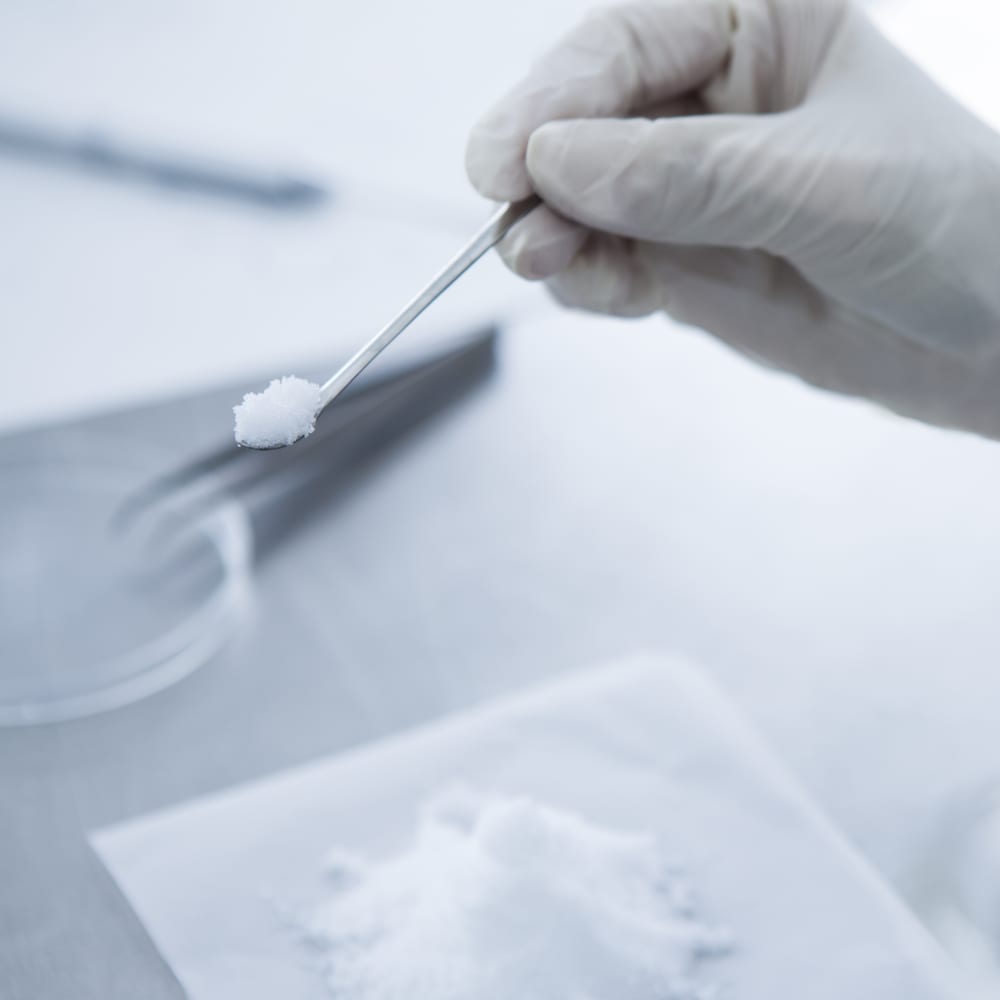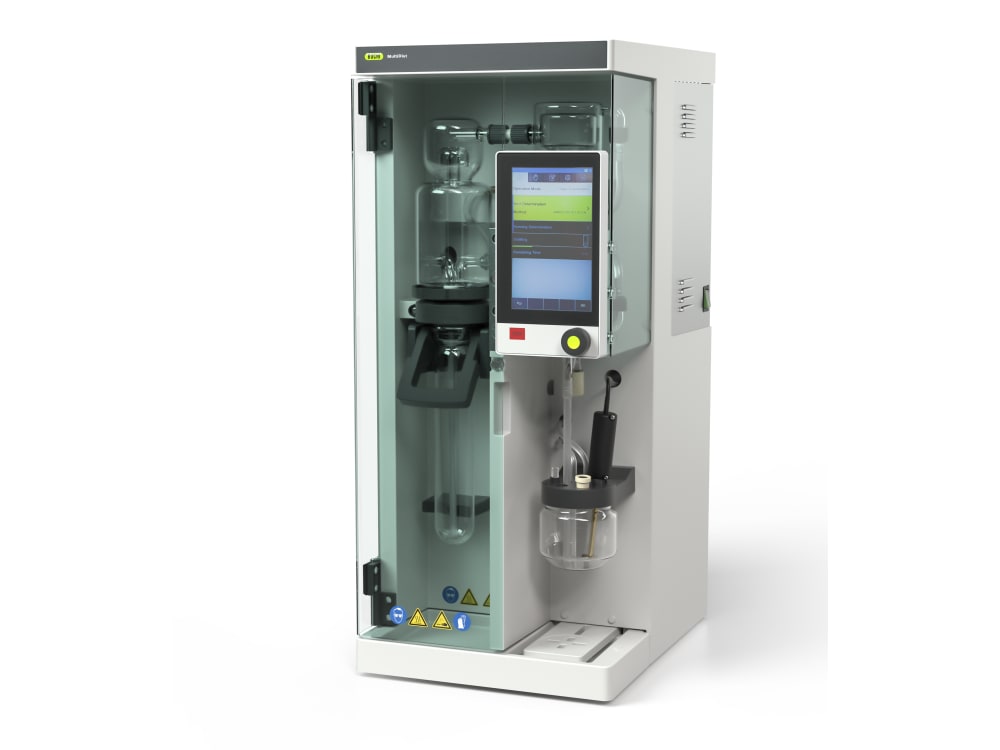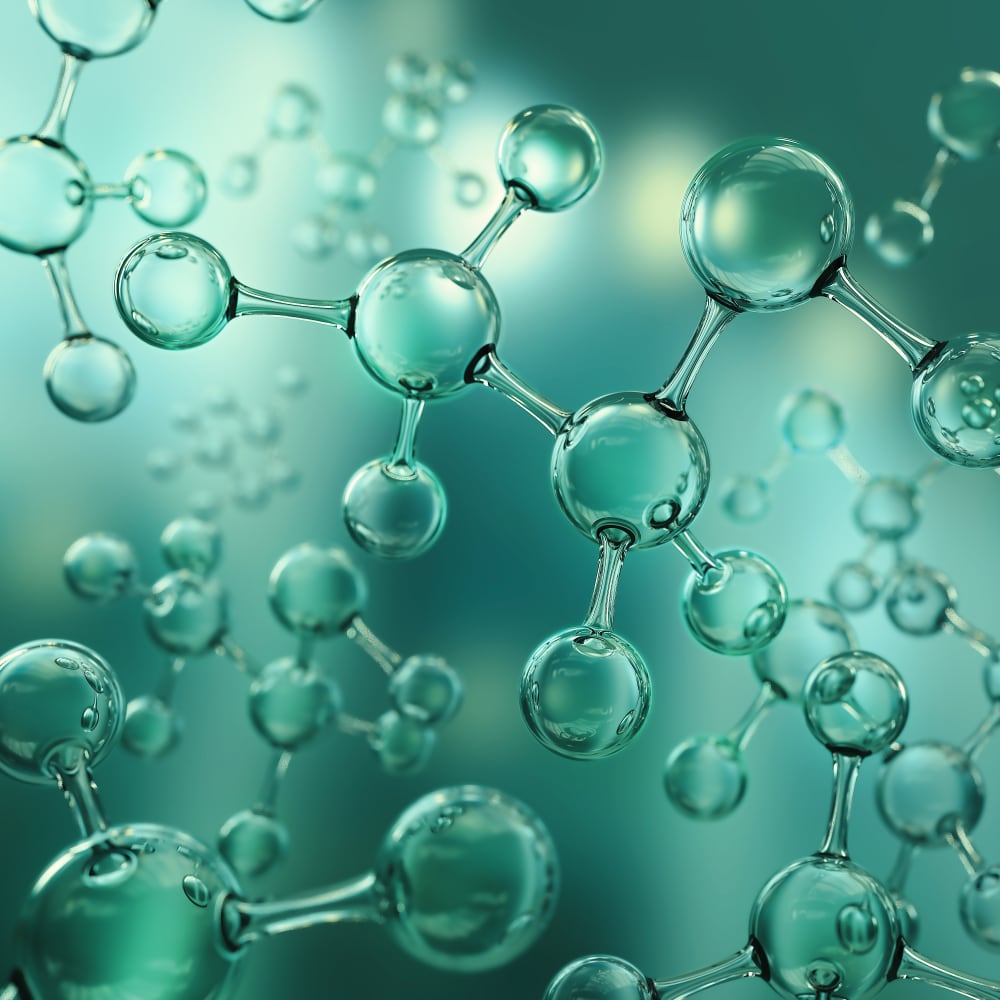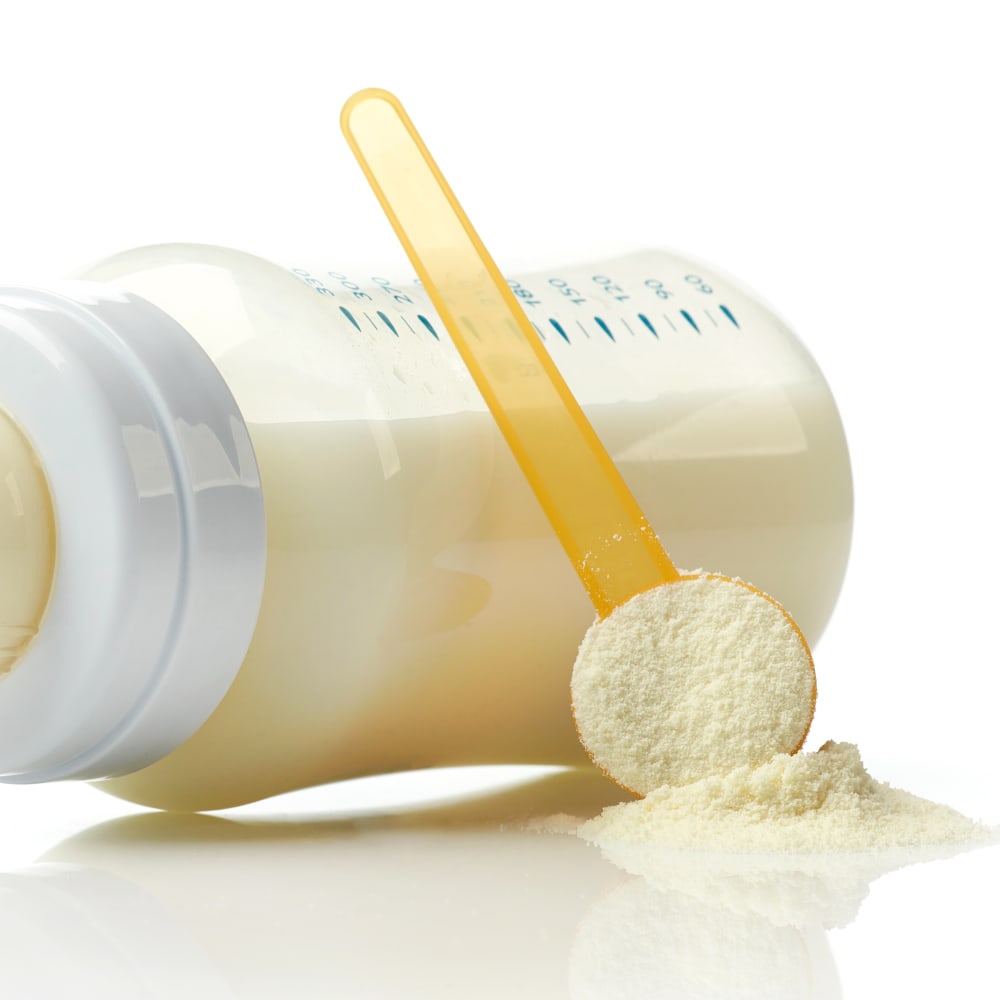Total SO2 content determination in reference standards by BUCHI method
MultiDist and BasicDist with BUCHI SO2 glass set: determination of total sulfur dioxide in reference standards sodium metabisulfite & HMS by the patented BUCHI Method with iodometric titration.

Sulfites are widely used as preservatives and antioxidants in foods and beverages. Exposure to high levels of sulfites can cause an allergic reaction. Given the health risks associated with sulfite exposure, its amount in beverages and foods is regulated in many countries. Regulations have set the maximum amount of sulfites used and required labelling practice to indicate the presence of sulfites. Total SO2 is defined as “the total of all the various forms of sulfur dioxide present in the sample, either in the free state or combined with their constituents”. Its determination in solid samples poses a challenge because SO2 is withheld in adducts and is released slowly during boiling. Recognized results are obtained by means of the generally accepted Optimized Monier-William’s method according to AOAC 990.28 which suggests the use of nitrogen-assisted boiling of the acidified sample to release the Total SO2. The method presented in this study provides equally quantitative results with much less time required per sample and is based on the patented BUCHI Method that involves steam distillation followed by a redox titration.
Regístrese para descargar
Instrumentos relacionados
Aplicaciones similares
Alcohol Content in Spirits
An accurate and reliable method for the determination of the alcohol content in different spirit samples with varied alcohol concentrations is introduced in this Application Note No. 837/2024. The Application Note presents results for the steam distillation setup of EasyDist that are in close compliance to EEC 2870/2000. The spirit samples are distilled using the distillation unit EasyDist with a glass splash protector. The alcohol content was determined after the distillation by injections in a density meter.











